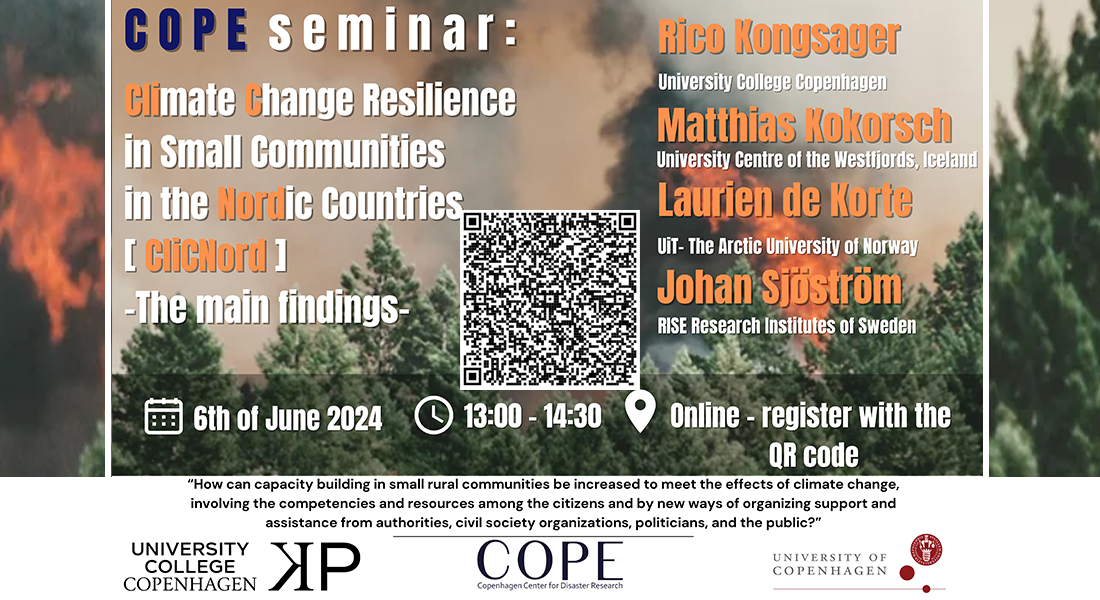COPE Seminar: Climate Change Resilience in Small Communities in the Nordic Countries (CliCNord) - the main findings

In this COPE seminar, Rico Kongsager from University College Copenhagen, Matthias Kokorsch from University Centre of the Westfjords, Iceland, Laurien de Korte from UiT- The Arctic University of Norway and Johan Sjöström from RISE Research Institutes of Sweden will discuss the main findings of the Climate Change Resilience in Small Communities in the Nordic Countries (CliCNord).
Register here before 05/06/2024.
About CliCNord:
The overall objective (OAO) of the Climate Change Resilience in Small Communities in the Nordic Countries project (CliCNord) is to build capacity in small communities to cope with the challenges of climate change.
The overarching research question of the project is:
How can capacity building in small rural communities be increased to meet the effects of climate change, involving the competencies and resources among the citizens and by new ways of organizing support and assistance from authorities, civil society organizations, politicians, and the public?
It will be a showcase to illustrate the complexity and diversity in the challenges communities in this region can expect in the future, and it will shed light on the vulnerabilities of local rural communities to climate change in several highly diverse areas in the Nordic countries. The focus is on small communities, since they, due to inadequate resources (e.g. weak emergency management capacity due to long distances, fragile tele- and Internet connection, low public investment in critical infrastructure, low engagement in the area from the private sector), have limited options related to climate change adaptation. Smaller communities are also interesting, as the level of place attachment is expected to be different compared to larger cities because small communities often have strong social and natural bonds, which are hard to maintain if people have to move, even only shorter distances. The aim is to include several very different hazards affecting local communities across the Nordic countries. The hazards, which are regarded as a direct consequence of climate change, are coastal flooding due to storm surges, cloudbursts, wildfires, temperature extremes, landslides, slush avalanches, flash floods, and storms.

|
Read more at CliCNord’s website |
| This project has received funding from the NordForsk Nordic Societal Security Programme under Grant Agreement No. 97229 |
| Publications and other material |
